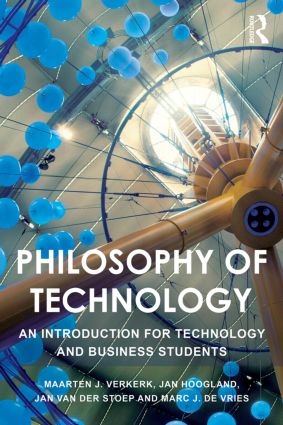Examines the ethical challenges that technology confronts us with.
Andrew Basden 2008. Philosophical Frameworks for Understanding Information Systems (IGI Publishing)
Develops a Dooyeweerdian approach to information systems - essential reading!
Albert Borgmann 2003. Power Failure: Christianity in the Culture of Technology. (Grand Rapids, MI: Brazos, 2003)
How can designing and using technology actually be a way of loving God and our neighbors? Veteran engineers and teachers Ethan Brue, Derek Schuurman, and Steve VanderLeest provide a field guide for fellow explorers working with technology.
Church of England BSR Cybernauts Awake
Jacques Ellul 1965. Technological Society (London: Jonathon Cape)
A pessimistic view of technology. Sees technology as a product of the fall. An important work nonetheless.
An examination of some of the key questions the computer culture has forced upon us. They also offer practical ways that computers can be used without being seduced by the bad. This should be required reading for all Christians who use computers!
David H. Kim et al. 2016. The Wonder and Fear of Technology. Center for Faith and Work
Allan Jiggins 1988. Human Future: Living as Christians in a High-Tech World (London: Scripture Union, 1988)
A useful introductory book.
David Lyon 1986. The Silicon Society (Tring: Lion)
An insightful Christian critique of the computer culture.
Stephen V Monsma, (ed). 1986. Responsible Technology: A Christian Perspective. Grand Rapids: Eerdmans.
An indispensable book. If you only read one book on technology it should be this one!
Carl Mitcham and Jim Grote, eds. 1984. Theology and Technology: Essays in Christian Analysis and Exegesis (New York: University Press of America)
Has an extensive annotated bibliography, as well as containing useful articles by Ellul and Egbert Schurmann among others.
Parker Rossman and Richard Kirby 1990. Christians and the World of Computers: Professional and Social Excellence in the Computer World (London: SCM)
A study book; each chapter comes with suggestions for study and reading.
David Pullinger 2001. Information Technology and Cyberspace: Extra-connected living. (London, Darton, Longman & Todd)
Byron Borger has a review/ summary of the book here.
Schuurman writes from a reformational perspective; his books are essential reading for all those who want to see what a Christian approach looks like.
Articles
Elwood Bass 1974. "Science, technology and society - a historical perspective." Pro Rege 2: 11-18
Steve Bishop 'The religious dimension of technology' RE Today 10 (3) 1993
J. D. R. de Raadt. 1998. A New Management of Life. Toronto Series in Theology (Vol. 75). Lampeter: Edwin Mellen.
Ken Funk 2007. "Thinking critically about technology" PSCF
Calvin Jongsma 1985. "Responsible technology: the challenge of our age." Pro Rege 13: 7-11.
Vanden House 1997. "In the beginning was Information." Pro Rege 25(4) (June): 19-28.
David Lyon 1997. "Spiders, flies and the Internet." Pro Rege 25(4) (June): 9-17.
David Lyon 1985. 'From Pacman to Homelink: Information technology and social ethics' Faith and Thought vol. 111 (1) (April 1985) 12-21
Paul Marshall 1986. 'Modern technology: idol or divine gift?' Evangelical Review of Theology vol. 10 (1986) 258-69.
Byron Newberry 2005. "The Challenge of Vocation in Engineering Education," Christian Scholar’s Review 35(1): 49-62.
2012. "Technology has a message." Christian Educators Journal 51(3): 4-7.
"A summary of a Christian perspective on computer science"
2017. "Modern Devices and Ancient Disciplines", Faith Today, November/December 2017, pp. 39-41.
Steven H. VanderLeest 2006. 'Teaching Justice by Emphasizing the Non-neutrality of Technology', JECB 10 (2) 2006:111-128
Quentin J. Schultze 2004. 'Faith, Education and Communication Technology' JECB 8 (1) 2004: 9-21
Blogs
- A theology of technology
- Engineering at Dordt
- Technically speaking
- Transforming Vision: Connecting theologia & techne
- tech.soul.culture
- Deus ex machina
- The frailest thing
- Macht's Philosophy of technology website. A list of online technology articles
- Society, Religion and Technology Project (Church of Scotland)
- Faith, Science and Technology (Evangelical Lutheran Church in America)
- Science and Christian Faith: Technoculture and the Future (Garrett-Evangelical Theological Seminary)
- Institute for Religion, Technology and Culture. A website in development by a Canadian pioneer in the relation of theology and information technology.
- Technology and Christian 'Values'. Last updated in 1999 but contains some useful materials.
- A Christian Perspective on Computer Science (Redeemer University College) A very useful list of resources
- Companion website to Derek Schuurman's book - has links to many useful articles and resources








